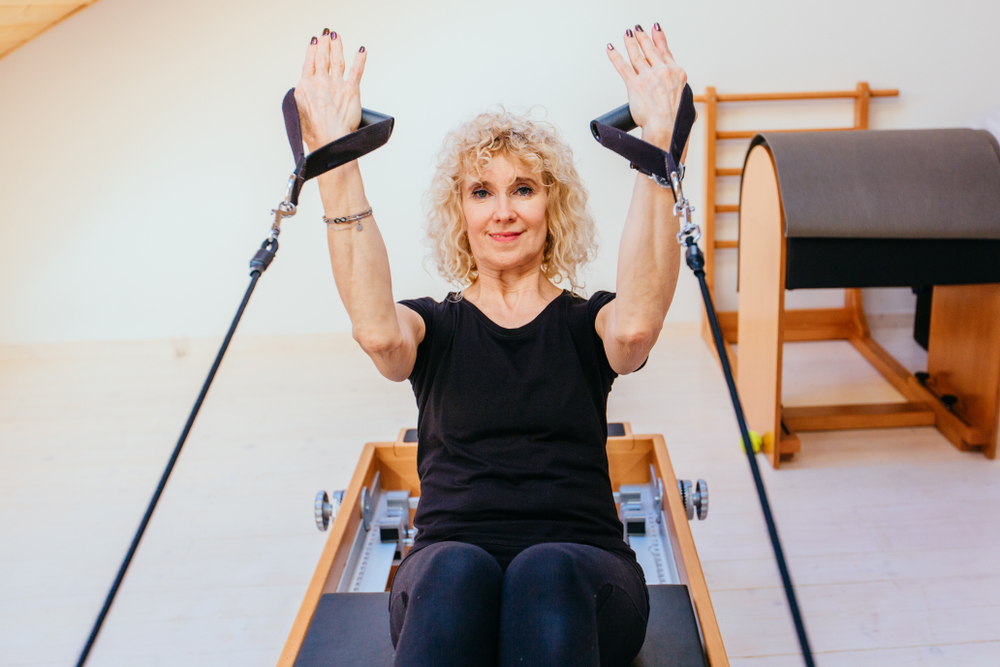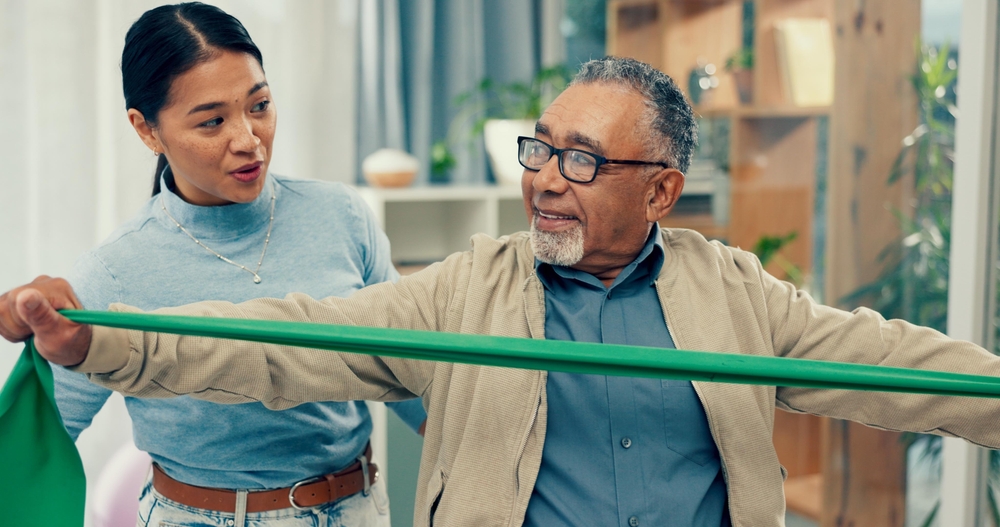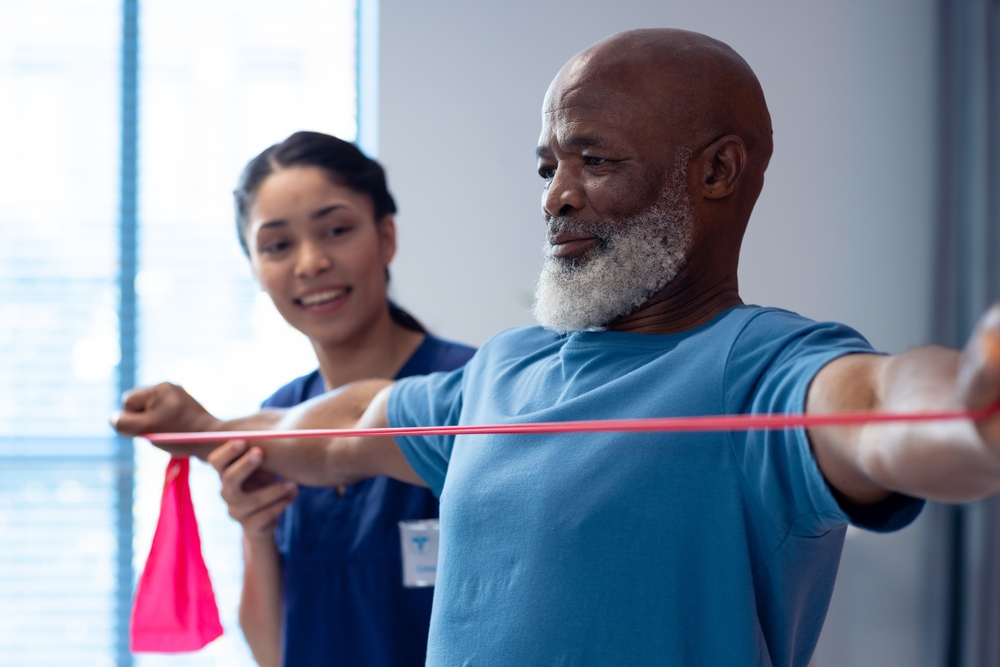Make an Appointment
Physiotherapists play a pivotal role in cardiovascular care, especially within aged care. Whether recovering from a heart attack, managing chronic heart failure, or simply striving to maintain physical health in later life, older adults benefit tremendously from targeted exercise, education, and functional retraining. In residential and community aged care services, physiotherapy integrates seamlessly with nursing and medical teams to reduce hospital readmissions, enhance mobility, and improve overall quality of life.
Cardiovascular conditions, such as coronary artery disease, heart failure, and post-surgical rehabilitation, carry significant morbidity in older populations. Physiotherapists deliver evidence-based interventions, including exercise prescription, manual therapies, and education on safe activity, all aimed at improving cardiac function, preventing deconditioning, and facilitating independence Better Health Channel. Beyond the heart itself, physiotherapy addresses secondary complications of ageing, such as muscle weakness, balance impairments, and reduced endurance, that can exacerbate cardiovascular risk and limit daily activities.

What is the role of Physiotherapy in cardiac patients?
Physiotherapy in cardiac care, often delivered as part of a cardiac rehabilitation program, focuses on three core areas:
1. Exercise Prescription and Supervision
- Tailored aerobic and resistance training improves cardiac output, vascular tone, and muscle strength.
- Programs typically begin in hospital or clinic, then transition to community or home-based sessions, reducing rehospitalisation and mortality Better Health Channel.
2. Risk Factor Modification Education
- Physiotherapists educate patients on safely increasing activity, monitoring exertion (e.g., using the Borg Scale), and recognising warning signs such as angina or undue shortness of breath.
- This empowers cardiac patients to make long-term lifestyle changes, such as regular walking or cycling.
3. Functional Recovery and Independence
- Beyond gym-based exercise, physiotherapy targets activities of daily living, climbing stairs, carrying shopping, and household chores, ensuring gains in fitness translate into real-world function.
In aged care, these interventions may be delivered via Mobile Physiotherapy, enabling continuity of care in a familiar environment.

What is the role and responsibility of a physiotherapist in aged care?
Within aged care settings, whether in residential care homes or community programs, physiotherapists assume diverse responsibilities:
Assessment and Screening
- Conduct mobility, balance, and endurance assessments (e.g., Timed Up and Go, 6-minute walk test) to identify cardiovascular risk and fall risk immediately after hospital discharge Better Health Channel.
Individualised Treatment Planning
- Develop tailored programs addressing musculoskeletal impairments, cardiovascular deconditioning, and functional limitations.
- Coordinated with nursing (for wound care or medication management) and occupational therapy (for ADL training).
Education and Self-Management Support
- Train staff and residents on safe transfer techniques, use of mobility aids (e.g., walking frames), and principles of energy conservation.
- Provide resources on heart-healthy exercise and the importance of staying active, even with chronic conditions.
Monitoring and Progress Evaluation
- Regularly review goals, adjust exercise intensity, and track outcomes - such as reduced dyspnoea on exertion and improved balance scores.
Fall Prevention Programs
- Integrate cardiovascular fitness with balance and strength exercises to minimise falls, a common trigger for hospitalisation in older adults.
Liaison and Advocacy
- Communicate with GPs, pharmacists, and specialists regarding a resident’s rehabilitation progress, and advocate for aids or home modifications as needed Better Health Channel.
Through these roles, physiotherapists ensure that aged care residents receive holistic, cardiac-safe rehabilitation that supports autonomy and wellbeing.

What is the role of physiotherapy in the elderly?
Physiotherapy in elderly care extends beyond cardiac support to encompass:
Maintaining Muscle Strength and Joint Mobility
- Resistance exercises and manual therapy preserve muscle mass and flexibility, counteracting sarcopenia and joint stiffness Better Health Channel.
Enhancing Balance and Coordination
- Balance activities, such as tandem standing and obstacle course, reduce fall risk and promote confidence in daily tasks.
Promoting Cardiovascular Health
- Aerobic exercises, tailored to individual capacity, support heart and lung function, enabling seniors to remain active and independent.
Managing Chronic Pain
- Techniques like TENS, gentle mobilisation, and therapeutic exercises alleviate musculoskeletal pain, facilitating better participation in social and physical activities.
Functional Retraining
- Task-specific practice, sit-to-stand transfers, safe bed mobility, and stair negotiation, ensures that improvements translate into everyday competence.
Education on Safe Movement
- Teaching proper technique and body mechanics helps seniors avoid injury during household chores and leisure activities.
By addressing these areas, physiotherapy underpins healthy ageing, enabling older adults to lead fuller, more mobile lives even in the presence of chronic disease.

What are the 7 roles of a physiotherapist?
Physiotherapists fulfil multiple roles, each essential to comprehensive care:
1. Assessment and Diagnosis
Identify impairments in movement, strength, balance, and cardiovascular function using standardised tests Better Health Channel.
2. Treatment and Rehabilitation
Deliver exercise programs, manual therapy, electrotherapy (e.g., TENS, ultrasound), and education to restore function.
3. Prevention and Education
Develop strategies to prevent injury, falls, or deconditioning and educate patients, families, and carers on safe self-management.
4. Health Promotion
Advocate for regular physical activity, heart-healthy lifestyles, and independence through community programs and individual counselling.
5. Advocacy and Liaison
Communicate with medical and allied health teams to coordinate care pathways, referrals, and access to equipment and services.
6. Research and Evidence-Based Practice
Implement and evaluate interventions guided by current research and contribute to quality improvement initiatives.
7. Leadership and Mentorship
Provide clinical leadership within multidisciplinary teams, mentor junior staff, and educate peers on best practice guidelines.
These seven domains illustrate the physiotherapist’s broad impact, from hands-on rehabilitation to system-level advocacy, ensuring older adults receive safe, effective, and person-centred care.

Frequently Asked Questions (FAQs)
Q1. How often should aged care residents receive physiotherapy?
A: Frequency varies by need, but 1–3 sessions per week, combined with daily self-managed exercises, optimises outcomes in strength, balance, and cardiovascular fitness.
Q2. Can physiotherapy help after a heart attack?
A: Yes - cardiac physiotherapy programs improve exercise tolerance, reduce rehospitalisation, and enhance quality of life for post-MI patients.
Q3. Do older adults need a doctor’s referral for physiotherapy?
A: In many cases, physiotherapists can be accessed directly, but referrals via GP or Aged Care Assessment Teams can facilitate funding under programs like TCP or Home Care Packages.
Q4. Is exercise safe for seniors with multiple health conditions?
A: When prescribed and supervised by a physiotherapist, exercise is safe and beneficial, even for those with chronic cardiovascular, respiratory, or musculoskeletal conditions.
Q5. What equipment is commonly used in aged care physiotherapy?
A: Mobility aids (walkers, canes), resistance bands, therapy balls, balance boards, and lightweight dumbbells are frequently utilised to tailor safe, functional exercises.

Physiotherapists are fundamental to cardiovascular and general aged care, delivering tailored exercise, education, and rehabilitation that supports seniors’ independence, reduces hospitalisations, and enhances quality of life. By combining assessment, treatment, prevention, and advocacy across diverse roles, physiotherapists ensure that older adults can safely enjoy daily activities and maintain heart health.
Take the Next Step:
If you or a loved one could benefit from specialised cardiovascular or aged care physiotherapy, contact us today to arrange an assessment. Discover our services:
Empower your heart health and daily function- book your personalised therapy plan today.

Date Published: Tuesday, April 29, 2025
Locate a Stroke Rehabilitation Physiotherapy
Service Near me
Get the experience & convinence you deserve to support your or a loved one's allied health needs.
Our Stroke Rehabilitation Physiotherapy team are currently serving & taking appointments in the following states and regions in Australia:
Need to get into direct contact with ur Client Services team? We're all ears. Call our team directly on 1300 731 733










